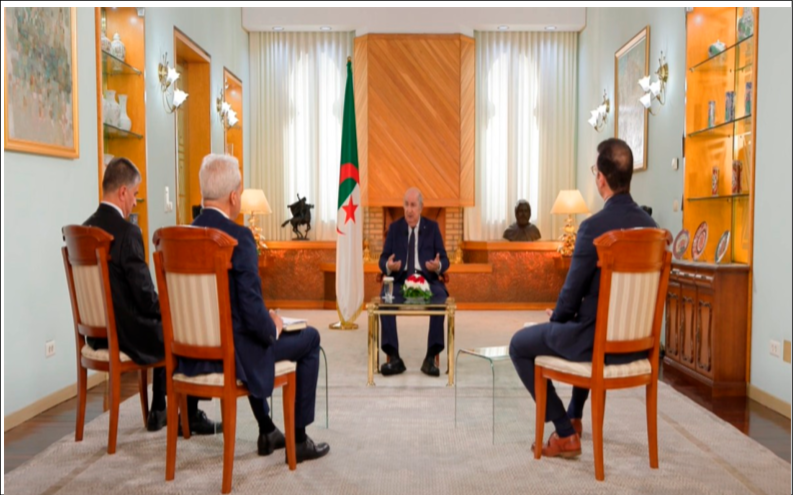Physical Address
Indirizzo: Via Mario Greco 60, Buttigliera Alta, 10090, Torino, Italy
Physical Address
Indirizzo: Via Mario Greco 60, Buttigliera Alta, 10090, Torino, Italy


Price control to preserve the purchasing power of citizens is part of the daily efforts of the President of the Republic with the Prime Minister and the Ministers: Inflation is now under control, having dropped to 3.8%, this is what President Abdelmadjid Tebboune said when he met national media representatives, broadcast on Friday on the national television and radio channels.
“Today, I can say with pride and honor for the Algerians who have contributed to this achievement, that inflation fell below 4 %, reaching 3.8 %, while the main countries are experiencing two -digit inflation”. “This represents a decrease of more than half compared to the level of inflation in Algeria after the Pandemia of COVID-19, where it exceeded 9%, added the President of the Republic, noting that” the prices of the basic necessities are now within the reach of the Algerians, including vegetables out of season “.
The President of the Republic considered that the country’s economic situation is on an “upward” tendency, stressing that the objectives set will be achieved thanks to the combined efforts of the Algerians and the Algerians. He said that the current policy of Algeria aims to create a balance between imports and local production to meet national needs in various products, noting that the effort has nothing to do with austerity. President Tebboune recalled that the country had experienced a “import chaos”, which had emptied the public treasury of its currencies without improving the situation.
He stressed that the new policy was aimed at creating a balance between imports and local production. He stressed that imports are necessary to meet the needs not covered by national production, and that “this balance is not easy, because it requires a specific digitization level”.
“We hope to achieve this by the end of the year, because digitization is the only way to protect the country.” For President Tebboune, it is necessary to rely on local production and not to remain dependent on imports in order to strengthen sovereignty, stressing that reaching a balance between imports and local production is “difficult, but we are on the lookout”. The objective of this approach is not to create a shortage or austerity, noting that satisfying the desire of young people, for example, to acquire international brands does not cost many currencies to the public treasury, “so young people will not be deprived of these brands, but we prefer to buy them in Algeria”.
The president also stressed that there are fluctuations in certain products, and not a shortage, noting that some parts work from time to time to create a shortage of a product.
President Tebboune said that the way was now open to modern national agriculture, based on science and technology, capable of meeting the needs of the country and turned towards the export of excess.
He explained that Algeria is advancing “constantly and massively” to self -sufficiency in several sectors, including that of wheat, through national and innovative projects with partners from Italy, Qatar, Saudi Arabia and other countries.
In this context, he declared that he had committed to achieving durum wheat self -sufficiency, noting that the preliminary results indicated that this objective would be achieved by the end of the harvest and final threshing season, especially since the state had provided all the resources necessary for farmers, some of which had not been committed to paying the entire production in the state. In this regard, the President of the Republic said he had in charge of the Minister of Agriculture, Rural Development and Fisheries to conduct an in -depth investigation in order to ensure that wheat is not sold in parallel markets.
The President of the Republic also underlined the importance of the “Baladna” project with the Qatari partner for the production of powdered milk, the completion of which is planned “at the end of 2028”. This project aims to respond to the strong local milk demand rather than importing it, highlighting its advantages in terms of job creation and breeding, as well as its prospects for similar scope with Italy and Saudi Arabia.
Lakhdar A.